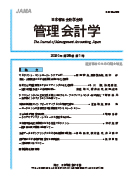Volume 28, Issue 1
Displaying 1-8 of 8 articles from this issue
- |<
- <
- 1
- >
- >|
Articles
-
2020Volume 28Issue 1 Pages 3-18
Published: March 31, 2020
Released on J-STAGE: April 15, 2020
Download PDF (818K) -
2020Volume 28Issue 1 Pages 19-36
Published: March 31, 2020
Released on J-STAGE: April 15, 2020
Download PDF (1118K) -
2020Volume 28Issue 1 Pages 37-53
Published: March 31, 2020
Released on J-STAGE: April 15, 2020
Download PDF (1280K) -
2020Volume 28Issue 1 Pages 55-70
Published: March 31, 2020
Released on J-STAGE: April 15, 2020
Download PDF (751K) -
2020Volume 28Issue 1 Pages 71-95
Published: March 31, 2020
Released on J-STAGE: April 15, 2020
Download PDF (1516K) -
2020Volume 28Issue 1 Pages 97-115
Published: March 31, 2020
Released on J-STAGE: April 15, 2020
Download PDF (1182K) -
2020Volume 28Issue 1 Pages 117-129
Published: March 31, 2020
Released on J-STAGE: April 15, 2020
Download PDF (1019K) -
2020Volume 28Issue 1 Pages 131-153
Published: March 31, 2020
Released on J-STAGE: April 15, 2020
Download PDF (1244K)
- |<
- <
- 1
- >
- >|
